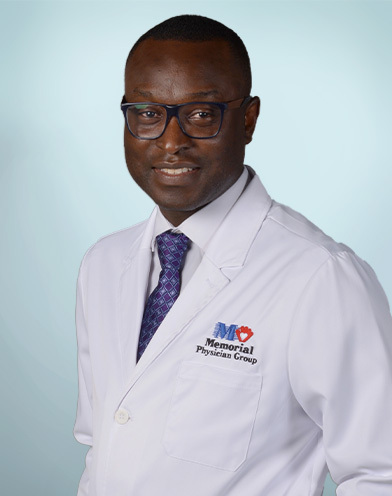Colon Cancer Expertise Close to Home
Colon cancer doesn’t have to mean putting your life on hold. We can help you feel better.
Your colon (the first and longest part of the large intestine) helps you remove water and electrolytes from stool. It also absorbs some nutrients from remaining food. Cancer in this area occurs when abnormal cell changes occur, causing growths (polyps). Colon polyps are noncancerous at first but can turn into cancer without treatment.
Anyone can get colon cancer. In some people, it’s due to family history or unhealthy habits. But many times, the cause is unknown. Experts at Memorial Cancer Institute help you find a path forward toward healing. We deliver exceptional care, including the latest therapies and supportive services for your well-being during and after treatment.
Diagnosing Colon Cancer
We often start caring for people before a colon cancer diagnosis. We offer screening colonoscopies to people of average risk who are 45 and older.
If you have a family history of colon cancer or risk factors, we may recommend getting your first colonoscopy sooner. We provide a thorough assessment through our High-Risk Cancer Genetics Program to determine your risk. You also undergo regular monitoring to detect early cell changes (polyps) that could lead to cancer.
When we detect polyps during a colonoscopy, we remove them. A pathologist examines the tissue under a microscope to confirm or rule out cancer. If we determine they’re cancerous, we may recommend additional tests, like imaging studies, to determine their severity and help us plan colon cancer treatments. We also perform genetic tests to check for specific mutations.

Colon Cancer Prevention Tips From Our Experts
Colon Cancer Treatments and Support
With early-stage cancers, removing polyps during a colonoscopy is often the only treatment necessary. Advanced cancers that grow past the surface of the colon lining or spread to other organs may require surgery. Our surgical team makes every effort to preserve healthy intestinal tissue. We aim to help people avoid a permanent ostomy (hole in the abdominal wall through which stool exits the body).
If you have a family history of colon cancer, we may recommend treatments to help you avoid a cancer diagnosis. In rare cases, this may involve removing the entire colon and rectum. If this happens, we construct a new rectum using tissue from your small bowel (called a J-pouch) or create a permanent ostomy.
Our multidisciplinary team determines whether you may benefit from chemotherapy or other forms of medical oncology. This type of colon cancer treatment can destroy trace levels of cancer that remain after surgery. We may also use it before surgery to shrink large cancers.
Supportive Therapies and Services for Colon Cancer
If you have colon cancer, our cancer support services can ease some of the worry and discomfort you may be experiencing throughout treatment. Offerings include emotional support, assistance from social workers and spiritual care. If you have an ostomy, specially trained and certified ostomy nurses show you how to care for it and provide support between appointments.
Colon Cancer Care: Why Choose Memorial Cancer Institute?
Our team includes nationally recognized colon cancer experts. In addition to delivering trusted care, they train doctors from other medical centers on innovative colon cancer therapies. This level of expertise is not widely available in South Florida and gives you the best chances for successful colon cancer treatment.
Highlights of our program include:
- Multidisciplinary approach: You benefit from the recommendations of experts in surgery, chemotherapy, radiation therapy, imaging, pathology and more. Our collective experience helps us deliver exceptional care — even for rare and complex cases. We coordinate the services you need for timely, personalized care. Meet our team.
- Cancer genetics: We have uncommon expertise in South Florida. Genetic testing can determine whether you are at high risk for colorectal cancer so that we can perform appropriate monitoring. In people with a diagnosis, genetic testing identifies gene mutations that respond to specific treatments.
- Minimally invasive surgery: Robotic technologies offer the highest surgical precision, enabling us to safely navigate delicate tissue. Offerings also include laparoscopic techniques and minimally invasive transanal (through the anus) approaches. They use small or no incisions and sophisticated instruments to carry out procedures. These techniques lead to a quicker, more comfortable recovery.
- Surgical expertise: We maintain high surgery success rates, lowering the likelihood of a permanent ostomy. This experience includes removing large cancers blocking the colon. And we often perform these complex procedures using minimally invasive techniques.
- Holistic care: Colorectal cancer experts develop a plan that treats the disease while prioritizing your whole health and well-being. Our integrative medicine program offers additional options for relieving discomfort and promoting healing. Offerings include acupuncture, massage, mindfulness and nutrition services from highly skilled providers.
















